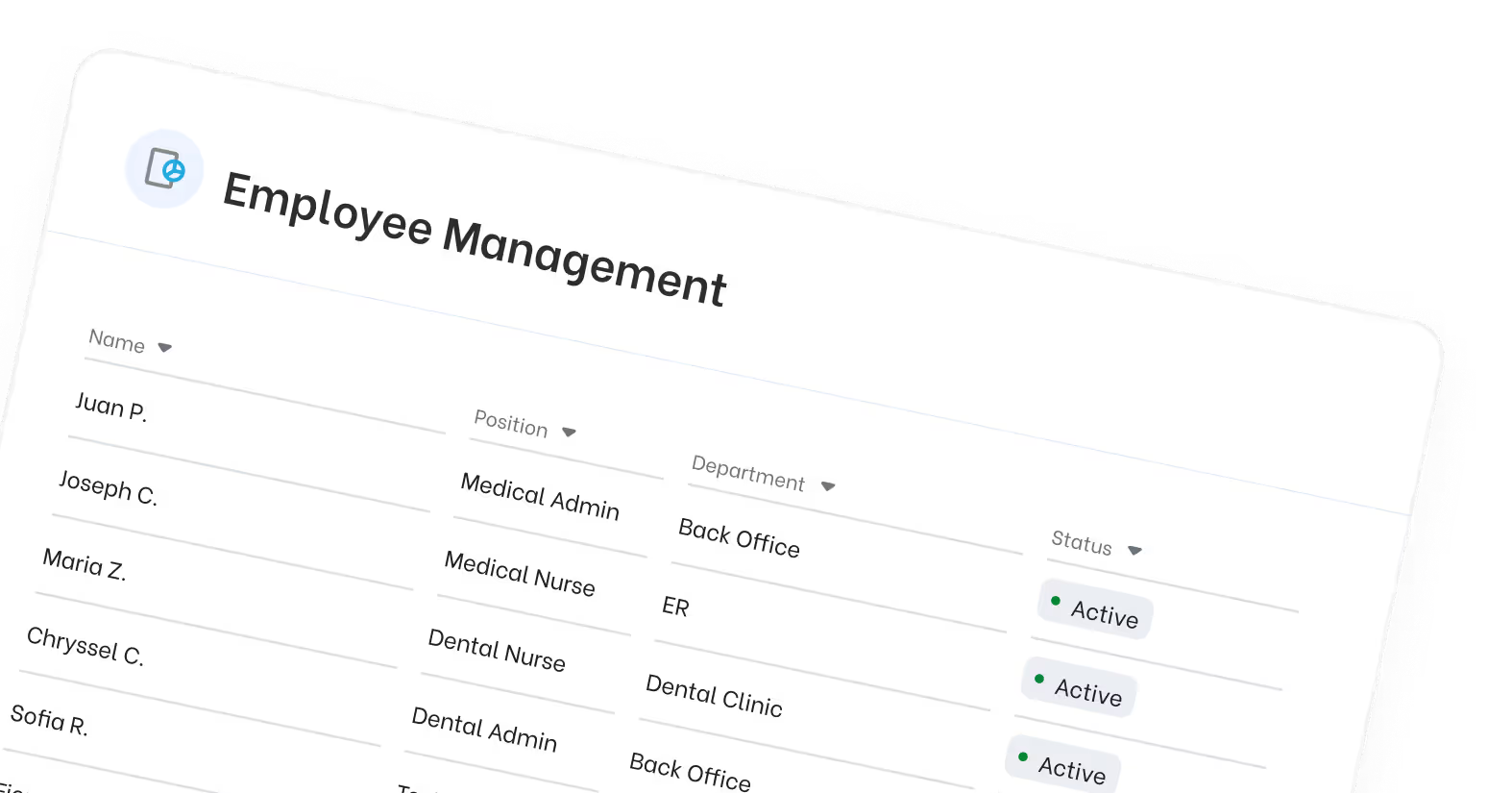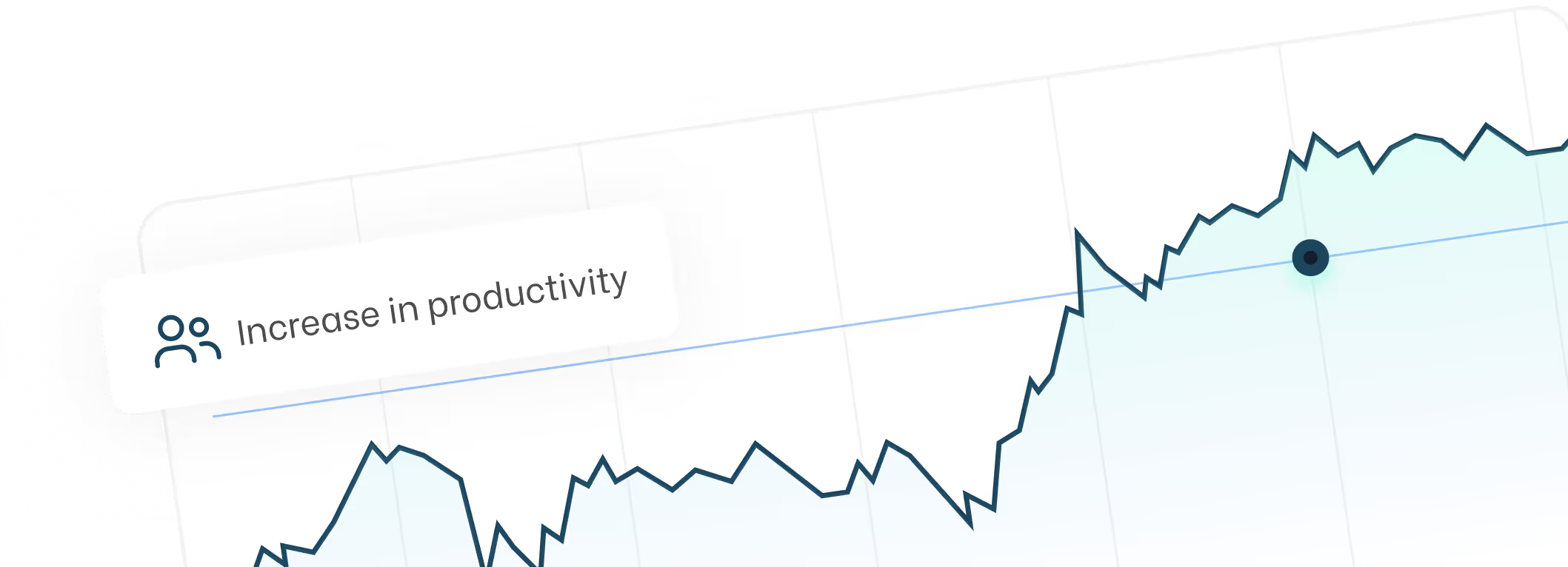Ensuring HIPAA Compliance with Virtual Medical Assistants
.avif)
Virtual medical assistants (VMAs) can transform practice operations while maintaining rigorous HIPAA compliance to protect patient privacy. In modern healthcare, providers, including medical providers who are covered under HIPAA, face the dual challenge of delivering quality care and managing extensive administrative tasks. VMAs lighten that load by handling scheduling, billing, benefits verification, documentation, and patient communications remotely.
But HIPAA compliance is paramount. Any virtual help must strictly follow privacy and security regulations to protect protected health information (PHI). Failure to comply can lead to severe fines, legal consequences (including, in egregious cases, criminal exposure), and, most damaging, loss of patient trust. HIPAA also protects patients' civil rights by ensuring their privacy and granting them access to their health information. This guide shows how healthcare providers can leverage VMAs securely and effectively, so patient data stays safe every step of the way.
When using VMAs, any covered entity or business associate must execute a Business Associate Agreement (BAA) and comply with all HIPAA regulations. The Department of Health is key in enforcing HIPAA regulations and overseeing compliance across healthcare organizations.
Understanding HIPAA and Why It Matters
HIPAA Overview
The Health Insurance Portability and Accountability Act (HIPAA) is a U.S. federal law that safeguards PHI, which includes individually identifiable health information, and sets nationwide standards for health data privacy and security. Three pillars matter most in day-to-day VMA workflows:
- Privacy Rule – Governs when and how PHI may be used or disclosed. The HIPAA Privacy Rule establishes national standards to protect patient confidentiality and sensitive health information.
- Security Rule – Requires administrative, physical, and technical safeguards for ePHI (electronic PHI). HIPAA security standards are established to protect electronic protected health information (ePHI) through robust data security measures. The HIPAA Security Rule mandates HIPAA security safeguards, including data security, security protections, and regular risk assessments to identify and mitigate security risks. Conducting risk assessments and security risk assessments is essential for identifying vulnerabilities and ensuring ongoing compliance.
- Breach Notification Rule – Requires covered entities and business associates to notify affected parties and, in some cases, regulators when a breach occurs, as outlined in the HIPAA Breach Notification Rule.
Covered entities include healthcare providers, healthcare clearinghouses, health plans, and billing companies, all of which must adhere to HIPAA requirements. Maintaining HIPAA compliance requirements involves implementing clear policies and procedures, employee training, and regular risk assessments. The HIPAA Omnibus Rule expanded compliance obligations to business associates and contractors, increasing the scope of regulatory requirements. Healthcare organizations must develop their own compliance programs and conduct risk analysis to meet HIPAA standards.
The Department of Health and Human Services (HHS) and health and human services agencies administer HIPAA regulations and provide oversight. Protecting patient medical records, personal health information, sensitive patient data, and electronic protected health information from data breaches is critical. The use of cloud services for storing healthcare data requires a thorough security risk assessment to address potential security risks. Mandated HIPAA privacy, secure healthcare operations, and physical access controls are essential for safeguarding sensitive health information.
Consequences of Non-Compliance
Non-compliance risks include regulatory penalties, civil lawsuits, corrective action plans, and reputational harm. A HIPAA violation occurs when an entity fails to comply with HIPAA laws or HIPAA rules, which can result in civil or criminal penalties, including prosecution for severe breaches. Monetary penalties can escalate with willful neglect. Beyond fines, a single breach can erode patient confidence and referrals, impacting revenue for years. The Office for Civil Rights and federal HIPAA auditors are responsible for investigating violations and enforcing HIPAA laws, ensuring that organizations meet all regulatory requirements.
What Is a HIPAA-Compliant Virtual Medical Assistant?
A HIPAA-compliant VMA is a trained remote professional who supports administrative and patient-facing tasks—while adhering strictly to HIPAA. This is not a general virtual assistant; it’s someone who understands the “minimum necessary” standard, access controls, secure communications, documentation, and incident reporting. They must follow all HIPAA compliance requirements and HIPAA rules to ensure legal protection of personal health information (PHI). Implementing clear policies and procedures for handling personal health information and sensitive health information is essential to maintain compliance and prevent breaches. Additionally, robust security protections are necessary to safeguard patient data from unauthorized access or disclosure.
Key Characteristics (aligned to HIPAA safeguards and electronic protected health information)
HIPAA security is critical for protecting patient data, and compliance requires a combination of administrative, physical, and technical safeguards.
Administrative safeguards
- Role-based access (least privilege) and unique logins
- Documented policies for PHI handling, retention, and disposal
- Security awareness and HIPAA training with periodic refreshers
- Workforce sanction policy and incident response steps
- Conducting regular risk assessments and security risk assessments to identify and address security risks, as required by HIPAA security safeguards
Physical safeguards
- Private, controlled workspace; clean-desk practices
- Device protections (screen privacy filters, automatic lock)
- Secure storage or zero local storage of PHI
- Controlling and monitoring physical access to equipment and data to ensure data security and prevent unauthorized entry
Technical safeguards
- Encrypted data in transit and at rest (TLS/HTTPS, encrypted drives)
- MFA/2FA, strong passwords, session timeouts
- Secure remote access (VPN/zero-trust portals)
- Audit logging and activity monitoring
- Implementing data security measures and following HIPAA security standards and HIPAA security safeguards to protect electronic protected health information (ePHI)
Training and Certification
A hallmark of compliance is ongoing training. Look for completion certificates (e.g., HIPAA Foundations or comparable courses), plus regular security refreshers and phishing simulations. Employee training on HIPAA policies and procedures is essential to ensure staff understand privacy, security, and breach notification requirements. Reputable providers require and document continuing education so assistants stay current on regulatory updates and threat trends. Regular risk assessments should also be conducted to identify vulnerabilities and maintain ongoing compliance.
Day-to-Day Responsibilities (Handled Securely)
A HIPAA-trained VMA can take on substantial administrative workloads, with privacy baked in. VMAs play a crucial role in supporting healthcare operations by ensuring the protection of sensitive patient data and electronic protected health information (ePHI) in compliance with HIPAA regulations:
- Patient Scheduling & RemindersManage calendars, confirmations, cancellations, recalls, and waitlists. Use compliant reminder tools; never include sensitive details in voicemail/text. Verify identity before discussing health info.
- Insurance Verification, Billing & Coding SupportVerify eligibility, collect pre-auths, submit claims, post EOBs, follow up on denials. All files transmitted via encrypted channels; store documentation in approved systems only. Billing companies, as business associates, must also comply with HIPAA when handling patient medical records and sensitive patient data.
- Medical Records ManagementUpdate EHR charts, reconcile labs/imaging, route messages, prepare visit summaries. Access through VPN or secure portal; use unique credentials and MFA. Ensure the confidentiality and security of patient medical records and electronic protected health information.
- Patient Communications & Front-Desk OverflowAnswer phones, triage messages, send secure emails/portal messages, coordinate telehealth. Use identity-proofing questions before sharing PHI; document call outcomes.
By shifting these tasks to a compliant VMA, practices reduce staff burnout, increase throughput, and keep privacy risks managed.
Benefits of a HIPAA-Compliant Virtual Assistant
- Enhanced Efficiency without Sacrificing Privacy
Delegate time-consuming, process-heavy tasks to a trained VMA. Practices often see fewer no-shows, faster revenue cycles, and smoother daily flow. - Cost Savings and Staffing Flexibility
Lower overhead versus in-office hires (salary, benefits, space, equipment). Scale hours up or down seasonally without compromising compliance. - Improved Patient Experience
Faster responses, proactive reminders, and clearer billing communication—delivered via secure channels—build satisfaction and trust. - Confidence in Compliance
With BAAs, documented SOPs, and ongoing audits, leaders gain peace of mind that PHI is handled correctly, on-site and off-site. Healthcare organizations benefit from developing their own compliance programs that meet regulatory standards, such as the Seven Elements of an Effective Compliance Program, and by implementing robust data security measures like encryption, access controls, and audit logs to safeguard sensitive health information.
Best Practices to Ensure HIPAA Compliance and Business Associate Agreements with Virtual Assistants
Meeting all HIPAA compliance requirements and mandated HIPAA privacy standards is essential for healthcare organizations to protect PHI and ensure legal compliance.
1) Execute the BAA Before AccessNo access to PHI until a signed BAA is in place with the VMA or staffing vendor.
2) Standardize Encrypted CommunicationUse HIPAA-ready email/messaging (TLS, secure portals). Prohibit personal email, consumer chat apps, and SMS containing PHI.
3) Enforce Secure Remote AccessVPN or zero-trust access, MFA, device posture checks, role-based permissions, and automatic session timeouts.
4) Provide Ongoing TrainingInitial HIPAA onboarding + periodic refreshers (policy updates, phishing tests). Include VMAs in your internal security drills.
5) Harden Devices and WorkspacesFull-disk encryption, updated OS/patching, EDR/antivirus, firewall, screen privacy filters, no PHI on local downloads unless strictly necessary and approved.
6) Use Privacy-Conscious WorkflowsApply “minimum necessary,” identity verify before disclosures, use message templates that avoid sensitive details, double-check recipients, and document consent where needed.
7) Audit, Monitor, and LogEnable EHR audit logs; review access periodically. Conduct quarterly mini-audits of VMA workflows and correct gaps promptly.
8) Incident Response PlanDefine how the VMA reports suspected incidents; include timelines, contacts, containment, forensics, and notification steps.
9) Conduct a Risk AnalysisPerform a thorough risk analysis to identify and address vulnerabilities in your systems and processes as required by HIPAA.
10) Use HIPAA-Compliant Cloud ServicesEnsure any cloud services used for storing or transmitting PHI meet HIPAA compliance requirements and have appropriate safeguards in place.
Pro tip: Create a one-page “PHI Handling Do/Don’t” for VMAs (and staff) and post it in your SOP wiki.
Common Risk Areas—and How to Avoid Them
- Unsecured Channels → Mandate secure portals or encrypted email for PHI.
- Over-sharing PHI → Enforce the “minimum necessary” standard in scripts/templates.
- Shared Logins → Prohibit. Assign unique credentials and MFA for every user.
- Local File Downloads → Default to zero local storage; if needed, encrypt and auto-delete per policy.
- Home Office Eavesdropping → Headsets, private workspace, and screen privacy filters are mandatory.
- Shadow IT → Maintain an approved app list; block or monitor unvetted tools.
- Risk Analysis → Conduct regular risk analysis to identify and address emerging security risks and ensure HIPAA compliance.
Identifying and mitigating security risks is essential to prevent a data breach, which can have serious regulatory and financial consequences under HIPAA.
Case Study: Sunrise Health Boosts Efficiency and Compliance with MedVirtual
The challengeSunrise Health, a mid-sized specialty clinic, was overwhelmed by phone volume, insurance verifications, and claim follow-ups. Staff fatigue increased error risk, and leadership worried about compliance drift during peak hours.
The solutionThe clinic partnered with MedVirtual to onboard a HIPAA-trained VMA. Before any access, MedVirtual executed a BAA and aligned on SOPs. The VMA received unique EHR credentials with least-privilege access, MFA, and VPN-only connections. Communication templates enforced the “minimum necessary” rule.
The results (6 months)
- 20% reduction in missed appointments via proactive reminders and waitlist fills
- Faster claims turnaround and fewer denials due to clean submissions and timely follow-ups
- Lower admin costs than adding another in-office FTE
- Zero privacy incidents in internal audits; all disclosures properly documented
Federal HIPAA auditors or the Office for Civil Rights may review an organization's own compliance programs to ensure they meet regulatory standards and the Seven Elements of an Effective Compliance Program.
“We were hesitant about outsourcing,” a Sunrise physician shared, “but our MedVirtual assistant is meticulous about privacy and unbelievably efficient. We get more done, and our compliance posture is stronger.”
Quick Implementation Checklist
☐ Sign BAA with VMA/provider
☐ Issue unique credentials; enable MFA and VPN access
☐ Approve HIPAA-ready tools; block unvetted apps
☐ Provide SOPs for PHI handling and disclosure
☐ Review HIPAA compliance requirements and update policies and procedures
☐ Train and certify; schedule refreshers
☐ Schedule regular risk assessments to identify vulnerabilities
☐ Turn on EHR audit logs; review quarterly
☐ Create incident-response playbook and contacts
☐ Run a 30-day quality/compliance check-in

Conclusion and Next Steps
HIPAA compliance doesn’t have to slow you down. With the right partner and safeguards, virtual medical assistants can elevate efficiency, revenue cycle performance, and patient satisfaction—while protecting privacy.
MedVirtual connects clinics with rigorously vetted, HIPAA-trained VMAs who plug into your existing systems with secure access, documented SOPs, and measurable outcomes. We handle the compliance heavy-lifting so your team can focus on care.
Optimize your practice with a HIPAA-compliant MedVirtual assistant. Book a demo today
Frequently Asked Questions (FAQs)
- What is a HIPAA-compliant virtual medical assistant?
A HIPAA-compliant VMA is a remote medical assistant who is trained to follow all HIPAA privacy and security rules while handling patient information. They use secure tools and procedures to manage protected health information with strict confidentiality. In short, they perform tasks like scheduling, billing, or record updates without ever compromising patient privacy. This includes adhering to the HIPAA Privacy Rule and HIPAA Security Rule, which set national standards for protecting patient health information and electronic data.
- Do I need a Business Associate Agreement (BAA) with a virtual assistant?
Yes. If your virtual assistant isn’t an in-house employee, they are considered a Business Associate under HIPAA. You should have a BAA signed with any VMA or outsourcing servicemed. This agreement legally requires them to safeguard patient data and comply with all HIPAA regulations – it’s a critical document to have in place to protect your practice. Health plans and organizations that provide health insurance coverage are also subject to HIPAA and must have BAAs in place with their business associates.
- How do virtual assistants keep patient data secure?
HIPAA-compliant VAs employ a range of security measures. They use encrypted communication channels for emailing or texting patient info and ensure any files are password-protected. They access clinic systems through secure remote connections (VPNs), which encrypt data in transit. Additionally, they follow best practices like using strong passwords, enabling two-factor authentication, and logging off when not in use. Reputable VMA providers also have regular security audits and monitoring to prevent data breaches. Data security is essential to protect sensitive health information during transmission and storage, ensuring compliance with HIPAA standards.
- What tasks can a virtual medical assistant do while maintaining HIPAA compliance?
A qualified VMA can handle many administrative and patient-support tasks: appointment scheduling and reminders, insurance verification, medical billing and coding, updating electronic health records, patient outreach (calls or emails), transcription of clinical notes, and more. The key is that they perform all these duties using HIPAA-compliant software and protocols. For example, when managing appointment reminders, they won’t include sensitive details in voicemail or will verify identity before discussing health info on a call – always adhering to privacy guidelines. Maintaining patient confidentiality is a top priority in every task to comply with legal and ethical obligations.
- What are the penalties if a virtual assistant violates HIPAA?
The penalties for HIPAA violations are the same whether a breach is caused by a direct employee or a virtual assistant. Financial fines can range from $100 to $50,000 per violation (or per record compromised), up to a yearly maximum in the millions, depending on the level of negligence. There can also be legal consequences: organizations might face lawsuits, and individuals responsible for willful breaches can even face criminal charges in severe cases. Beyond official penalties, your practice’s reputation can suffer greatly after a breach. A data breach involving protected health information can trigger mandatory reporting, regulatory investigations, and significant financial and reputational harm. That’s why choosing a trusted, well-trained VMA and maintaining oversight is so important.
- How can I verify that a virtual medical assistant is HIPAA-compliant?
Start by checking their credentials and training. Ask if they have undergone formal HIPAA training or hold any compliance certifications. You can request proof of training completion. If you’re hiring through a service like MedVirtual, inquire about their vetting process – top companies ensure every assistant is HIPAA-educated and often test their knowledge. Next, discuss security protocols: a knowledgeable VMA should be able to explain how they keep data secure (encryption, VPN, etc.). Don’t forget to have a BAA signed. Finally, consider asking for references or case studies of other healthcare clients they’ve worked with. If other providers attest to their reliability and compliance, that’s a good sign.
- Is using a virtual assistant riskier than using in-office staff?
Not if you do it right. While any scenario involving PHI requires caution, a properly managed virtual assistant can be just as safe as an in-person employee. In fact, some experts note that with robust safeguards, virtual medical assistant services can be even more secure than traditional setup. This is because specialized VMA providers often enforce very strict security measures and continuous training. The key is to integrate the VMA into your compliance program: ensure they follow the same (or stricter) policies as your in-clinic team. When you partner with a trusted, HIPAA-compliant service, outsourcing does not mean increased risk – it means an extension of your team that operates under the exact same privacy commitments. Protecting healthcare data is critical, and with the right protocols, virtual assistants can help maintain the confidentiality, integrity, and security of patient information.






